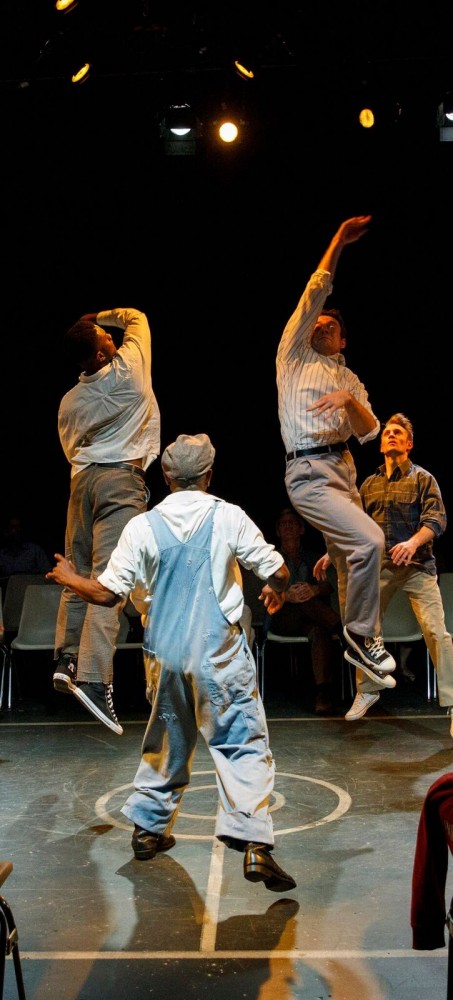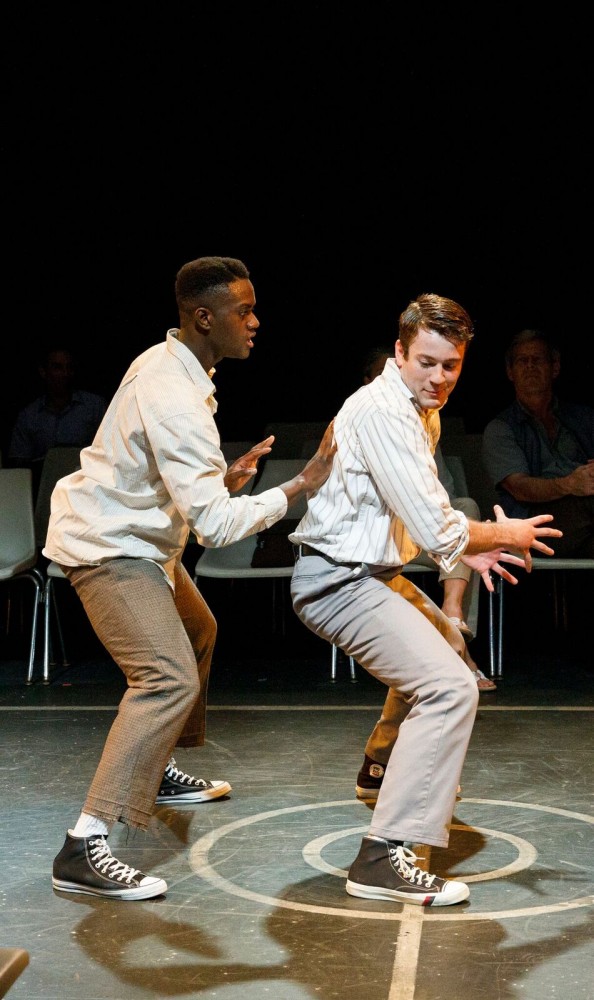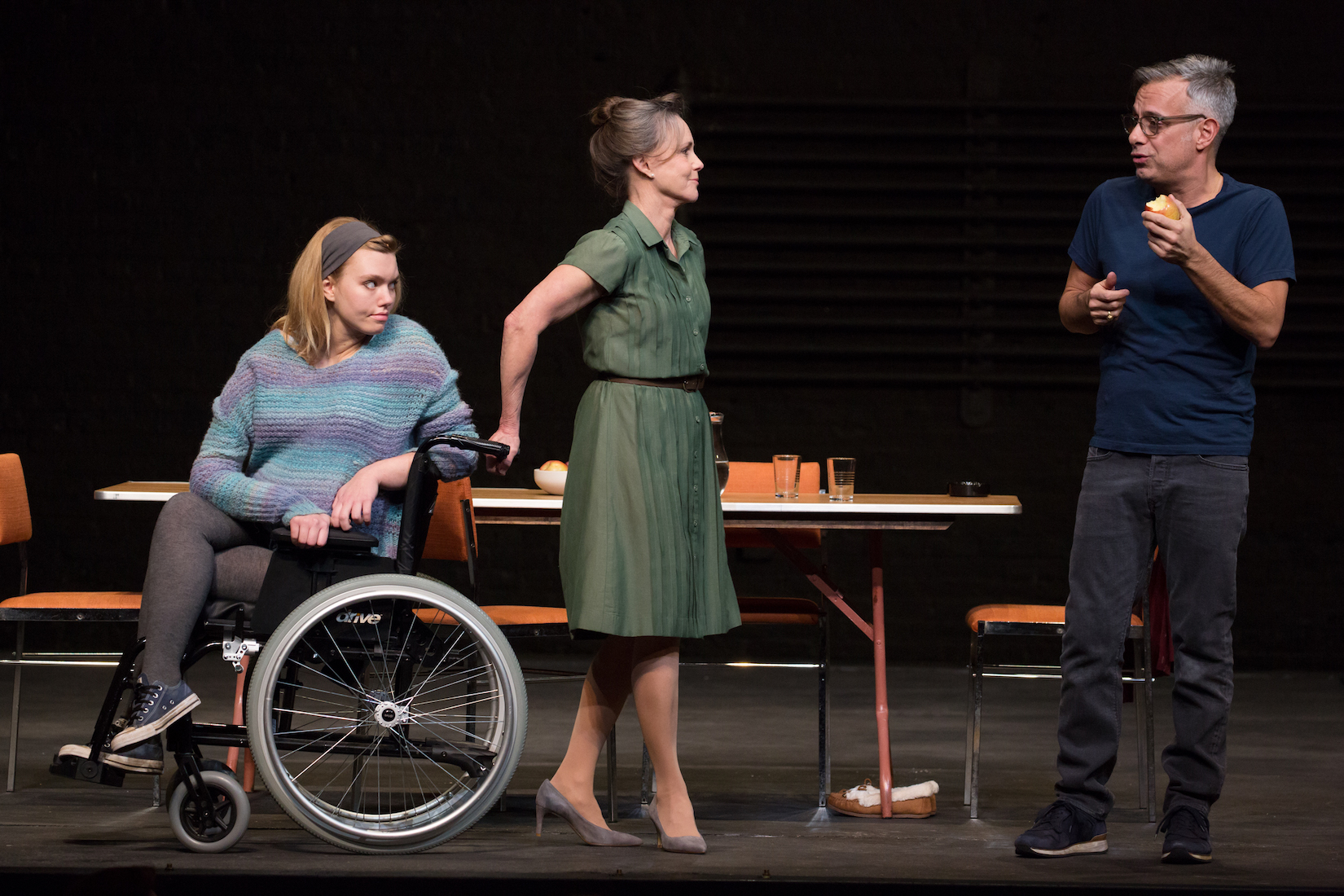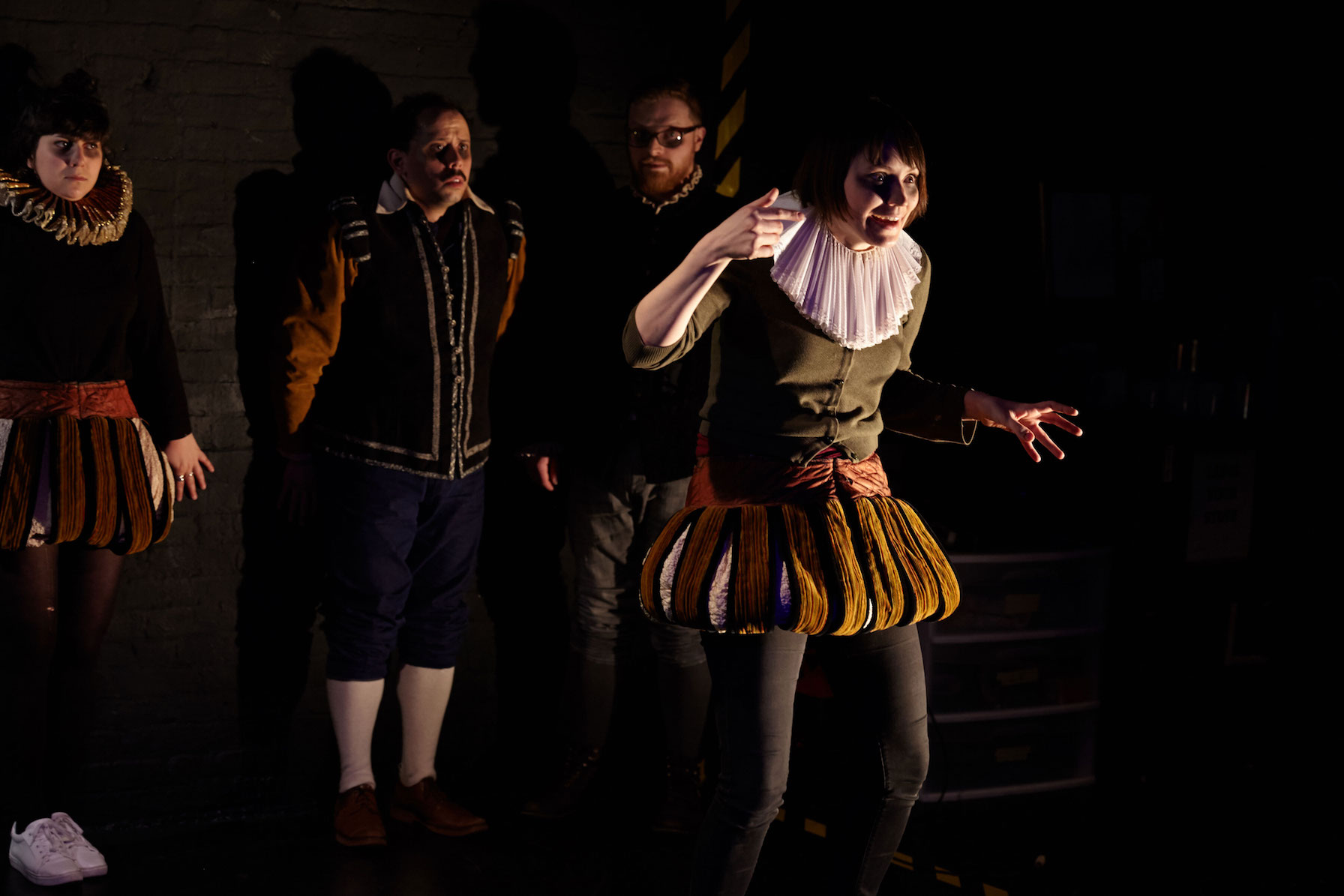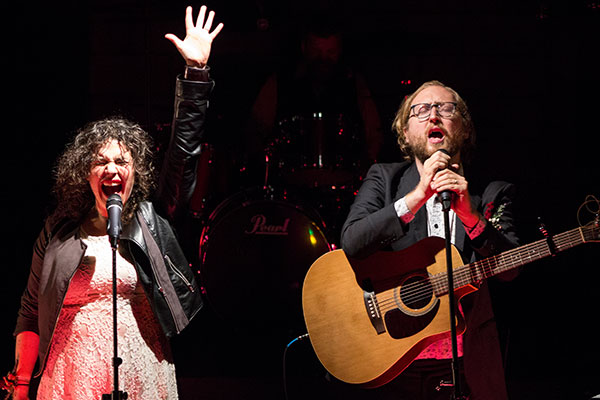by Michael Bracken
Basketball is the prism through which segregation is viewed in Separate and Equal at 59E59 Theaters. Presented by the University of Alabama, Seth Panitch’s hard hitting, sometimes heavy-handed drama takes place in Birmingham in the 1950’s, when separate was a fact of life and equal a non-starter.
After a wordless, slightly abstract ball-handling exhibition/competition, courtesy of one white and one black player, Separate and Equal zeroes in on the black competitor, eighteen-year-old Calvin (a charismatic Adrian Baidoo), the drama’s central figure. He’s on an outdoor public basketball court, skillfully scaled down by production designer Matthew Reynolds to fit within 59E59’s Theater B. The court, in the center of the theater with the audience wrapped around it, is where all the play’s action transpires, including frequent flashbacks to scenes set in different places.
Calvin is soon joined by his friends, lean and lanky Nathan (Edwin Brown III) and Emmett (James Holloway), whose brother, we later learn, was lynched on his way back from the Korean War. The threesome is visited by Two Snakes (Will Badgett), a sage and sassy elder, followed by the local police, Lieutenants Connor (Ted Barton) and Dixx (Jeremy Cox). Two Snakes helps keep the boys out of jail – they don’t belong on the court – and Connor, played with bullying bombast by Barton, tells the boys to be on their way.
But they never leave. Three white boys show up to use the white half of the court while the colored boys stay on the colored side. (Projections at each end of the court show water fountains labeled “white” and “colored.”) One of the whites is Edgar, a close playmate of Calvin’s as a young boy. They don’t directly acknowledge each other, but there’s a tense connection between them just the same.
Through a series of flashbacks, we see that Calvin’s mother (Pamela Afesi) was the maid at Edgar’s home, and Edgar’s mother (Barbra Wengerd) put a stop to the boys’ playing together. The history of the boys and their mothers is parceled out by playwright Panitch in pieces that ultimately congeal into a somewhat forced whole.
The other two “cracker” ballplayers are Jeff (Steven Bono Jr.) and Wesley (Dylan Guy Davis). Jeff is the cockiest of the lot, and overweight Wesley’s father is a lawyer who keeps his colored clients out of trouble. Wesley’s ill-chosen last name is Finch, the name of the lawyer-hero in To Kill a Mockingbird.
It’s Wes who suggests the two trios play each other. And that’s exactly what they do. Words fly as much as the ball. Spirits and scores go up and down. The racial divide comes and goes.
Kudos to choreographer Lawrence M. Jackson, as well as Panitch, who directs his own work. Without a ball but with the help of backboard video – we see whether a shot goes in or not – the game comes alive and we follow it easily. Players jump and swerve and twist and turn in a balletic rendition that mostly satisfies, yet occasionally loses its connection to the game. It’s amazing that Jackson keeps the boys from colliding in such a tight space, no less that their bodies tell a story. Panitch elicits strong performances all around.
Separate and Equal is often less than clear. For example, the first time the sheriff comes around, he cites an ordinance that forbids whites and coloreds playing together. But the white boys haven’t arrived yet. There’s also some mention of its being Wednesday and not Sunday. If it was Sunday, would it have been OK for them to be there?
Yet for all its lapses, the play is a potent memento of the legacy of segregation. Panitch reminds us from a number of angles that a white was always Mr. or Mrs. to a black, but the reverse was not the case. A small indignity in the larger segregationist landscape, it was a token of a society that constantly reinforced the inherent inferiority of being black and the corresponding supremacy of whites.
Photos: Jeff Hanson
Through Sunday, September 30, at 59E59 Theaters (59 East 59th Street, between Park and Madison Avenues.) www.59e59.org. 85 minutes, no intermission.


